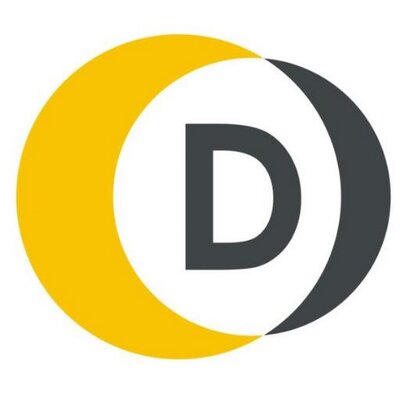
Did Ask Jeeves have a point? How ‘search’ has become the new brand in the SEO landscape
The way in which consumers are searching for products online has changed. In recent times, there has been a significant increase in question-based searches from consumers looking for quick solutions to their needs, overtaking direct searches for brand names. It’s clear the consumer environment is evolving, so what can be done to ensure existing and emerging businesses can keep up?
Nate Burke, CEO of technology, digital marketing, and ecommerce solutions firm Diginius, explains the importance of optimising your products to meet this changing behaviour, while also remembering to build on your brand to become the ultimate business.
Marketplaces are now dominating the online sphere, which results in more unbranded searches being made by online shoppers who are looking for solutions to their queries, rather than a named-brand product. Nowadays, global brands can expect 58% of their searches to be unbranded, while surprisingly, for small and mid-sized businesses, the figure is much higher, sitting at around 81%.
Of course, for many businesses that heavily rely on their brand awareness and branded searches to bring in revenue, this rise might be a cause for concern.
However, virtual and online marketplaces are now considered one of the most effective ways to scale globally, both for established businesses and smaller brands as they account for almost half of all global ecommerce sales.
Whilst these platforms were once a place for small and independent brands, online retail giants such as Amazon and Walmart are beginning to scale their own marketplaces, capitalising on the nearly $2 trillion that is spent annually on the top 100 marketplaces.
The shift in search can be put down to a number of changes in the way we shop, consume media and use technology. Notably, the increasing access to voice search, with Alexa and Google devices now regular features in our homes, has encouraged the rise of question-based searches.
Understandably, competition on these platforms is increasing. So, in order to ensure their products are being presented to the right customers, businesses must work on product optimisation, while also building on their brand to encourage trust and repeat purchases.
Recreating the 'boutique' shopping experience online
One way to do this is by aligning in store and online experiences. For example, although the days of exploring treasure trove, boutique shops are dwindling in favour of the online environment, consumers are still looking for those unique, personalised experiences from brands.
In fact, 33% of consumers prefer to buy unique products over mass-manufactured items, which businesses should use as an opportunity for innovation within their product offering, to develop something that the other big retailers do not.
Etsy is the perfect example of how independent sellers have come together on one virtual marketplace platform to provide consumers with just that: the opportunity to find unique, handmade products, combined with the ease of shopping online.
The ecommerce and PPC perspectives
Google processes over 40,000 search queries every second. Whilst some of these are guaranteed to be named brand searches, many are following suit with the growing solution-led trend, creating a strong case for brands to focus their efforts on appearing in these results through search engine and product description optimisation.
For example, say a consumer is searching for loungewear. Emotional, descriptive words that create a sense of feel and a tailored result should play into your product descriptions, such as 'warm loungewear', 'comfortable loungewear' or 'soft loungewear'.
The idea here is to narrow down descriptions to give people exactly what they want when performing these niche, specific searches. And in the era of voice search, ensuring products are optimised with accurate and specific descriptions is crucial.
The same approach is effective for product ads, too. Descriptions and targeting cues must be tailored to customers’ searches in order to generate the best results. While this might sound like a time-consuming task, the use of PPC software and analytics tools can help you to automate, test and adjust activity for optimum performance. For example, through use of dynamic ads, copy can be adjusted to ensure it is directly relevant and personal to each searcher to encourage click throughs and conversions.
Although Google remains the go-to search advertising platform, we always recommend running ads on Microsoft’s Bing platform too, as often, businesses find they generate better returns and require less budget. This is because Bing is much less competitive than Google, with fewer advertisers bidding for the same keyword, although search volumes remain attractive.
Similarly, with the rise of social media commerce, with Facebook Marketplace and Instagram Shopping leading the way, as well as Amazon advertising, businesses looking to capitalise on shifting search and shopping habits have a number of avenues to explore.
And while these tactics can help get products in front of customers in the increasingly competitive solution-led search environment, others, including retargeting, can then help to build brand awareness. This way, brands can capture customers who may have only been in the discovery or research phase when they were served the initial ad, as well as customers who may be ready to repurchase.
Full circle
This solutions-based environment is similar to that of Ask Jeeves, or, as it is known today, Ask.com. The question answering business was a perfect example of how a search engine can cater to the needs of consumers and provide quick answers to their questions. However, it was launched ahead of its time.
It is interesting to see how this has now come full circle, with consumers needing quick and snappy results on-the-go, and Ask.com being perfectly positioned to cater to this need. AI has somewhat advanced this algorithmic model in today’s Google-led environment, but one could have imagined, in another time and place, that Ask could have been a pioneer in search-led advancement, rather than being the nostalgic afterthought it remains today.
This is also a prime example of the constantly evolving online market. What consumers need today might not be what they want tomorrow. Although unfortunate in the case of Ask.com, businesses that can stay ahead of the curve by paying close attention to changes in consumer behaviour are much better off than those that stay stagnant. And, brands, whatever their size or scale, should most certainly pay attention and align their product descriptions to fit a much more solutions-led environment.
But whilst adapting to changes, it’s important to never lose focus of the brand. Customers will always inherently look for trust in their purchases, and a simple flash offer is not enough to sway them away from a brand that deliver quality and confidence in its delivery.
Although non-branded searches are the trend today, any sustainable business must be backed by a strong brand - that’s one thing that will never change.


